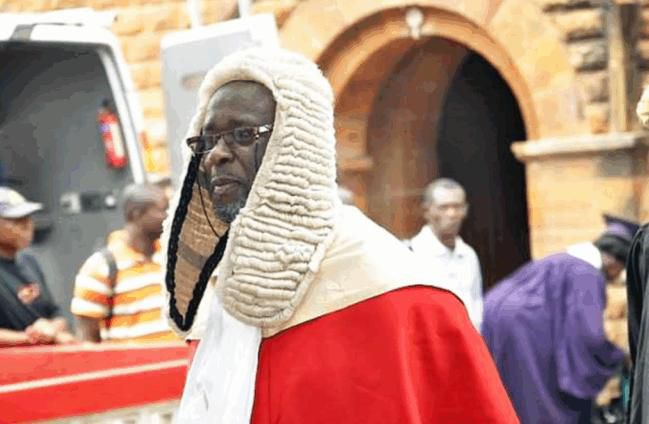Acting Chief Justice Calls for Deeper Legal Education Reform in Ghana
Ghana’s Acting Chief Justice, Justice Paul Baffoe-Bonnie, has called on legal education stakeholders to go beyond simply increasing admissions and instead focus on improving quality, infrastructure, and relevance in training future legal professionals.
He made the remarks during the formal enrolment of 824 new lawyers at the Ghana School of Law in Accra, highlighting what he described as a pivotal moment for reflection and reform in the country’s legal education system.
Justice Baffoe-Bonnie noted that while expanding access is important, a disproportionate focus on numbers without addressing systemic weaknesses could undermine the profession’s future.
“The challenges facing legal education in Ghana are real and pressing,” he said, pointing to long-standing issues such as the limited capacity of the Ghana School of Law, a backlog of qualified applicants, and the need for modernised infrastructure.
He urged the legal fraternity to treat these hurdles not as indicators of decline, but as catalysts for strategic transformation. “Our challenges must illuminate the path forward,” he added.

The Acting Chief Justice stressed that reforms should not be limited to increasing intake quotas but must aim to enhance the substance and delivery of legal education.
“We must ensure that reforms truly redefine the purpose of legal education in the 21st-century Ghanaian context,” he said. He also called on the General Legal Council, legal educators, and policymakers to engage in reforms that are intentional and future-oriented.
Ghana’s legal system is a key pillar of its democracy, and the ability to train competent, ethical, and well-equipped lawyers is essential for justice delivery and rule of law. As demand for legal education rises across Africa, Ghana’s reform journey could serve as a model or a warning for other nations facing similar constraints.
According to data from the Ghana School of Law, over 3,000 law graduates apply annually for the Professional Law Course, but fewer than 1,000 are typically admitted due to space and resource limitations. This bottleneck has sparked public criticism and calls for transparency and broader access.
In 2022, protests by law students and civil society groups drew attention to what they described as opaque entrance exam procedures and limited access. While the introduction of entrance reforms in 2023 sought to address some concerns, critics argue that more comprehensive changes are needed.
Other African countries, including Nigeria and Kenya, have also grappled with legal education reform balancing the need to uphold standards with the demand to democratise access. Ghana’s ongoing debate is part of this wider continental conversation.

As Ghana reflects on the state of legal education, the Acting Chief Justice’s comments serve as a timely reminder that true reform must be holistic combining access with quality, purpose, and technological adaptation.
Stakeholders are expected to continue discussions in the coming months, with the General Legal Council set to review proposed amendments to legal education structures by early 2026.
While increasing enrolment offers short-term relief, Ghana’s legal education system must adapt structurally to meet 21st-century challenges. Sustainable reform will require deliberate planning, investment, and consensus among legal institutions and educators.
Read also: Ghana to Introduce HIV Preventive Drug in 2026 to Curb New Infections

